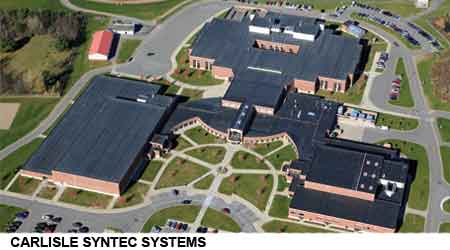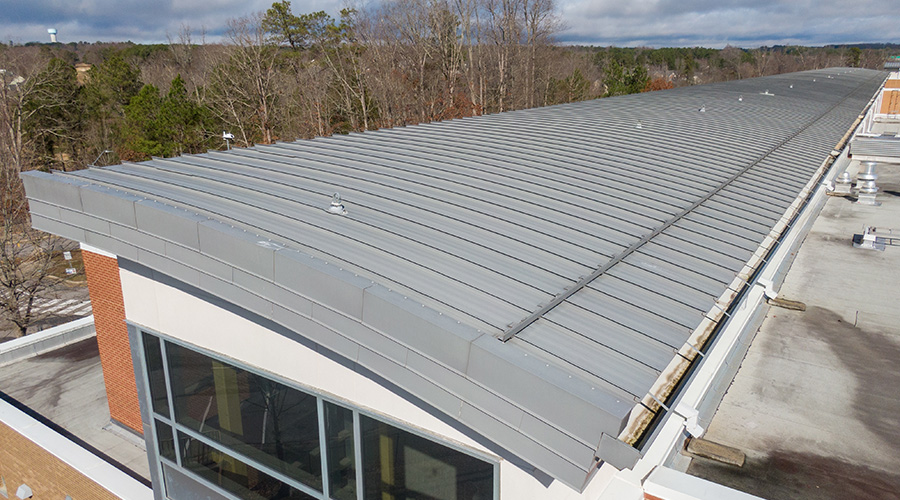Roofing: Avoiding Project Headaches
Part one of a three-part article on roofing projects
Maintenance and engineering managers hear the phrase “out of sight, out of mind” all too often when it comes to roofs on institutional and commercial facilities. Roofs are large, long-term investments for facilities, so managers often must find temporary solutions to prevent long-term problems and major leaks issues, when costs can skyrocket.
One wrong decision when deciding to replace or recover a roof can spell trouble down the road. Manufacturers have seen and heard about many problems managers must confront during specification, installation and post-installation. Perhaps the best advice for managers considering a roofing project is to plan the project as soon as possible.
“We often recommend trying to put together a five-year plan,” says Brian Lambert with the Garland Co. These are capital projects. Roofs tend to be a pretty large investment, so setting that budget early, knowing which roofs need to be replaced and what kind of maintenance is required years out helps so that you know what it’s going to cost (in future years).”
System selection
When moving forward with a roofing project, the potential for confusion exists among managers and building owners looking for the best solution possible.
“What I see happen often is there may not be a specification,” Lambert says. “Lots of times, managers are getting quotes, and three different people are getting three different quotes for three different solutions.
(Managers) “must have a roofing professional who can evaluate what went wrong or what went right with the existing roof, evaluate the problems you had, and be able to create a specification that hopefully alleviates some of the problems.”
Hiring a roofing contractor who comes recommended by peers and who carries a solid reputation in the industry can help managers answer many of the questions that surround a roofing project.
“Roofs primarily fail at the perimeters and detailing areas, so be careful when analyzing contractor bids that the difference in pricing is not the result of reduced technical requirements at the perimeters and roof details,” says Jay Thomas with Sika Sarnafil. “Having a specification developed by a roofing consultant will help you to avoid this.”
Other questions to consider during the specification process include:
Will the roof drain properly? “Does the specification provide for proper drainage and slope to the roof?” says Tim Botkin with GAF. “A lot of times, I see managers who are building the specifications forget about if the roof system or deck really have the proper drainage to get water off the roof and get proper drainage to the drains and into the slope.”
How durable is the product? Managers must consider all the activity that might take place on the roof, such as maintaining HVAC units.
“Among the most common mistakes managers make is underestimating rooftop traffic and its potential effect on a system’s integrity and longevity,” says Rick Ruppert with Firestone Building Products. “Ever-changing technology and renewed scrutiny of energy performance often results in increased foot traffic and machinery. Managers can mitigate a traffic log and can also install a smart lock on roof scuttle and doors to monitor activity. Applying walkway pads and supplemental paving can direct people around service points and equipment to further minimize risks to a roof system’s performance.”
Will the roof limit noise? “Reducing noise from outside sources is usually desirable and is best achieved by using fully adhered systems over dense gypsum-based cover boards or ballasted EPDM roofing systems,” says Ron Goodman with Carlisle Construction Materials. “The added mass inherent in these systems reduces exterior noise infiltration.”
What will the warranty cover? “Warranties do not guarantee that you will not have problems with your roof for the term of the coverage,” Thomas says. “They only provide some sort of remedy should something happen. Roofing warranties have many exceptions in the fine print that managers should take time to understand.”
Related Topics:














